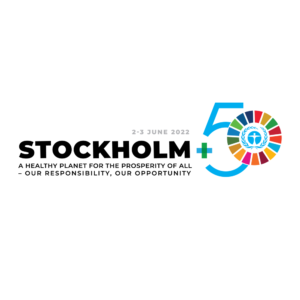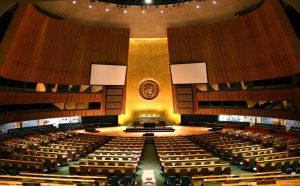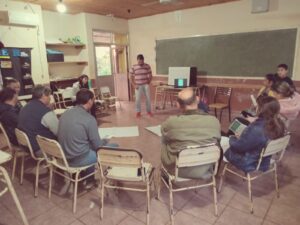Environmental Education: a response to the environmental crisis
The human species has always interacted with the environment and has modified it, environmental problems are not new. However, what makes the current situation particularly worrying is the acceleration of these changes, their massive nature and the universality of their consequences.
Environmental problems no longer appear as independent of each other, but rather constitute elements that are related to each other, configuring a reality different from the simple accumulation of all of them. For this reason, today we can talk about something more than simple environmental problems, we are facing a real environmental crisis and the severity of the crisis is manifested in its global nature.
Since the sixties, when the established growth model was questioned and the impact it produced on the environment was denounced, the diagnoses made on the environmental crisis have been numerous. Little by little, the human being begins to make a new reading of the environment in which he is immersed and a new worldview, a new perception of the human-society-environment relationship, is making its way.
These approaches quickly achieve institutional recognition. Thus, for example, at the international level, the United Nations, through its agencies (mainly UNESCO and UNEP), has been the main promoter of studies and programs related to environmental education. However, we cannot reduce this development process to its institutional aspect. It is necessary to acknowledge the efforts of countless entities, non-governmental organizations and educators who have contributed, sometimes anonymously, not only to the conceptualization of environmental education but, above all, to its implementation.
Functions of Environmental Education
A fundamental purpose of environmental education is to ensure that both individuals and communities understand the complex nature of the environment (resulting from the interaction of its different aspects: physical, biological, social, cultural, economic, etc.) and acquire knowledge, the values and practical skills to participate responsibly and effectively in the prevention and solution of environmental problems and the management of environmental quality.
Environmental education is key to understanding the relationships between natural and social systems, as well as to achieve a clearer perception of the importance of socio-cultural factors in the genesis of environmental problems. In this line, it must promote the acquisition of awareness, values and behaviours that favour the effective participation of the population in the decision-making process. Environmental education understood in this way can and should be a strategic factor that affects the established development model to redirect it towards sustainability and equity.
Therefore, environmental education, rather than being limited to a specific aspect of the educational process, must become a privileged basis for developing a new lifestyle. It must be an educational practice open to social life so that members of society participate, according to their possibilities, in the complex and supportive task of improving relations between humanity and its environment.
Objectives of environmental education
- Awareness: Help people and social groups to acquire greater sensitivity and awareness of the environment in general and related problems.
- Knowledge: Helping individuals and social groups acquire a basic understanding of the environment as a whole, its related problems, and the presence and role of humanity in it, which entails critical responsibility.
- Attitudes: Help people and social groups to acquire social values and a deep interest in the environment that encourages them to actively participate in its protection and improvement.
- Skills: Help people and social groups to acquire the necessary skills to solve environmental problems.
- Evaluation capacity: Help people and social groups to evaluate environmental education measures and programs based on ecological, political, economic, social, aesthetic and educational factors.
- Participation: Help people and social groups to develop their sense of responsibility and to become aware of the urgent need to pay attention to environmental problems, to ensure that adequate measures are taken in this regard.
Defined at the International Seminar on Environmental Education in Belgrade. 1975
Education and environmental management
Previously, the strategic nature that environmental education has in the process towards sustainable development has been raised. However, it is clear that educational action, by itself, is not enough to respond to the environmental challenge. “To contribute effectively to improving the environment, the action of education must be linked to legislation, policies, control measures and decisions that governments adopt concerning the human environment.” (UNESCO).
Education is, at the same time, a social product and an instrument of transformation of the society where it is inserted. Therefore, educational systems are both agent and result of processes of social change. However, if the rest of the social agents do not act in the direction of change, it is very unlikely that the educational system will transform the complex framework in which the socio-economic structures, the relations of production and exchange, the patterns of consumption and, in short, the established development model.
The challenge we face today is to favour the “transition” towards sustainability and equity, being aware that this transition requires profound economic, technological, social, political, as well as educational changes. Thus, even recognizing the enormous potential of Environmental Education, we cannot turn it into a false lifeline.
Source: unescoetxea.org
Alecrin annualreport biodiversity BiodiversityDay carbon credits climate change comunidades locales Cooperativa Nueva Esperanza CPSI program cruce caballero ECOLOGY ecosystems ENVIRONMENT environmental education ESG Criteria FORESTS ForNature Free and Informed Prior Consultation gaia gaia theory global warming green cross uk gs1 reserve Highlights Metodología de investigación social native communities native species natural disasters nature news Patagonia PNUMA reforestation regeneration Relaciones con la comunidad reserva GS1 Responsabilidad social SDGs stockholm+50 sustainable investment UN UNEP voluntary carbon market woods on fire youth








